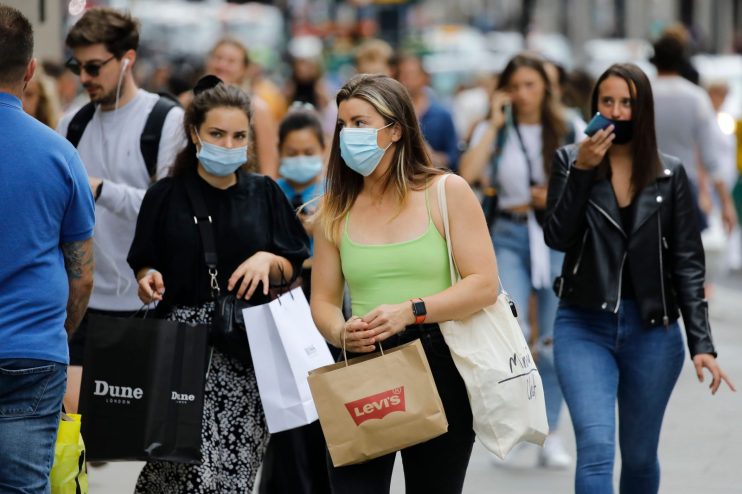UK inflation picks up despite lockdowns as clothing prices rise

Prices picked up across the UK economy in October, the latest figures have shown, with clothing pushing inflation higher after disruption to the sector earlier in the year.
Consumer price index inflation came in at 0.7 per cent on an annual basis last month, the Office for National Statistics (ONS) said. That was up from 0.5 per cent in September and above expectations of no change.
“The rate of inflation increased slightly as clothing prices grew, returning to their normal seasonal pattern after the disruption this year,” deputy national statistician Jonathan Athow said.
“The cost of food also nudged up, while second-hand cars and computer games also all saw price rises. These were partially offset by falls in the cost of energy and holidays.”
However, prices were flat when measured on the less commonly used month-to-month basis, having risen 0.4 per cent in September.
The UK economy has been hit particularly hard by coronavirus. Economists say this is in part because it relies heavily on face-to-face consumer consumption. Spending at restaurants, pubs and cafes is crucial, for example.
Inflation dropped to an annual rate of 0.5 per cent in May before rising to one per cent by June. Lower energy prices and cuts to VAT to support the economy were two main factors contributing to lower inflation.
It then slipped to 0.2 per cent in August. The drop was driven by chancellor Rishi Sunak offering discounted meals under the Eat Out to Help Out scheme.
Bank could have to do more to boost inflation
Persistently low inflation was one factor behind the Bank of England’s decision to pump £150bn more into the economy.
It said earlier this month that the purchases should help push up inflation sharply to 2.1 per cent by the end of 2021.
Samuel Tombs, chief UK economist at Pantheon Macroeconomics, said that “inflation looks set to hover close to 0.7 per cent until April”.
He said that by then “the energy component will no longer will depress the headline rate and some restaurants, hotels and leisure providers will raise prices in response to the return of VAT to its usual 20 per cent rate”.
Tombs also said that prices for things such as used cars and electronics will be subdued in 2021. They have jumped this year.
He reckoned that inflation will therefore “not rise to the two per cent target within the next two years”. He said that keeps “the door ajar” for the Bank of England “to loosen monetary policy further”.